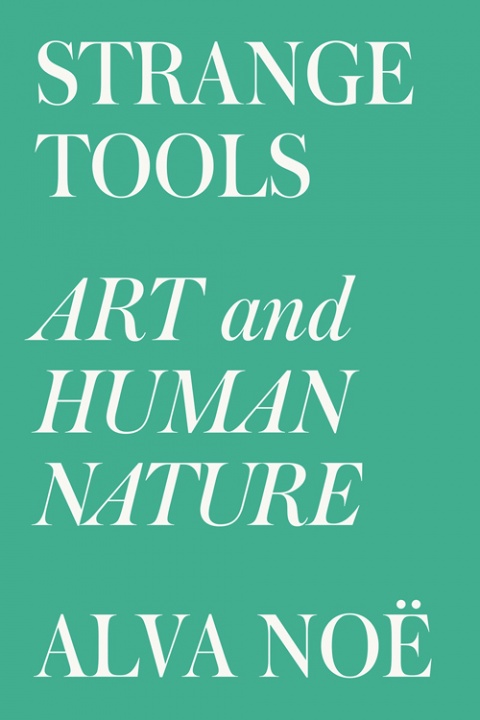Columbia College | Columbia University in the City of New York
The Art of Knowing Ourselves: Humans and Their Strange Tools
What is art? Why does it matter to us? And what does the fact that it matters to us tell us about what it means to be human? These are the provocative key questions asked by Alva Noë ’86 in Strange Tools: Art and Human Nature (Hill and Wang, $20).

Noë, a professor of philosophy at UC Berkeley, where he is also a member of the Institute for Cognitive and Brain Sciences and the Center for New Media, examines the connections between works of art and the nature of philosophy. A work of art, Noë suggests, is a “strange tool” humans make in order to better under stand ourselves. When we make art or engage with art we are also studying the way human beings are organized. And while the job of art is philosophical, the practice of philosophy is also artistic: “Art and philosophy are both transformative,” he says. “They are ways of finding ourselves when we are lost.”
Noë analyzes the roles art and philosophy play in our lives with insights about choreography, painting, film and music (both pop and classical) and variations in philosophical thought. Theories of Plato, Kant and Heidegger brush up against works by Cézanne, Roman Polanski and Bruce Springsteen.
Of course, both practices are highly subjective: “You can’t prove a philosophical position anymore than you can prove that a painting is or is not a worthwhile work of art ,” he writes.

JILL SHOMER
Noë’s themes are academic but are also very personal. He grew up in Greenwich Village in the heady 1970s, in a house and community of artists, “surrounded by art and by people for whom the value of art was paramount.” The question of art and why it matters, Noë says, was his first problem when he began to study philosophy.
He didn’t want to leave New York City for college and so Columbia was a logical choice. The College had recently started admitting women and Noë remembers it as an exciting time. “Columbia then felt like it was really on the upswing. The arrival of women definitely raised the game,” he says.
He knew he wanted to study philosophy — “I always had a philosophical disposition” — and during his freshman year, he had his mind blown by an introduction to cultural anthropology course taught by Robert Murphy ’49, GSAS’54. The enduring idea that there are so many varieties of social organizations around the world but that in our humanity we are all the same was captivating for Noë, who pleaded with Murphy to be allowed to take his graduate-level seminar even though he was only a freshman. (Murphy turned him down four times before acquiescing.) That was in addition to his Core classes, which he confidently embraced. “My intellectual life wouldn’t be what it is if not for the Core,” he says. “There’s so much that I read that I might never have come to read. Back then, I thought I knew everything but I learned so, so much. It was a transformative experience.” Noë recalls he and his classmates felt free to try out ideas, and he felt that the faculty were respectful and supportive. “Columbia took care of me,” he says.
In his senior year, Noë was awarded a Euretta J. Kellett Fellowship, which allowed him to study for two years at Oxford. It was a positive experience, he says, and one that inspired him to earn a Ph. D. at Harvard in 1995 and become a professor. Teachers such as Murphy, Robert May at Barnard and Charles Parsons, who mentored Noë both at Columbia and Harvard, were his role models in academia. “I learned a lot about teaching from my Columbia professors — you carry on the way you were trained .”
Noë wrote three books on cognitive science and the empirical study of human experience before he was ready to explore the themes in Strange Tools. “I’m grappling now with the relationship between what I’m doing now and where I came from ,” he says, “making the case that there’s an important internal connection between what art and philosophy aspire to.” For him, the questions are huge, and critical to his life story.
And while the parallels between art and philosophy may be challenging to consider, Noë says he works hard to make his work accessible to everyone. “This book is not written in the style of conventional academic philosophy. It’s the arguments and conversations it generates that sustain it as a thing of value.”
Issue Contents
Published three times a year by Columbia College for alumni, students, faculty, parents and friends.
Columbia Alumni Center
622 W. 113th St., MC 4530, 6th Fl.
New York, NY 10025
212-851-7852
cct@columbia.edu
Columbia Alumni Center
622 W. 113th St., MC 4530, 4th Fl.
New York, NY 10025
212-851-7488
ccalumni@columbia.edu

